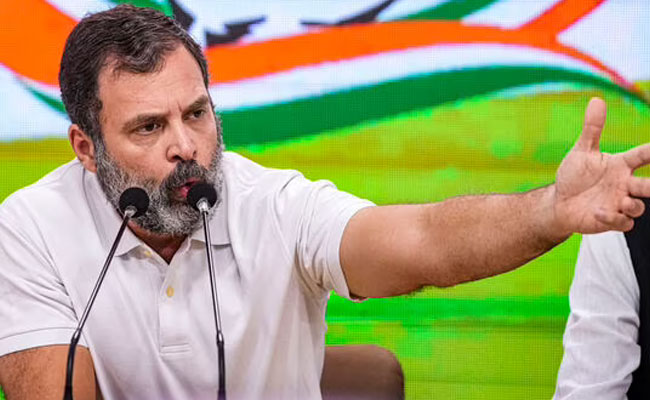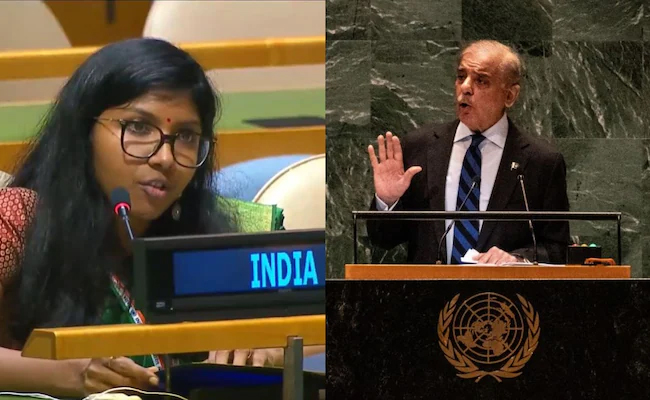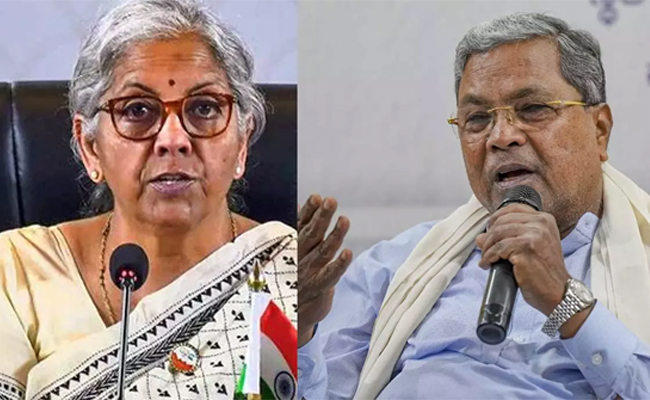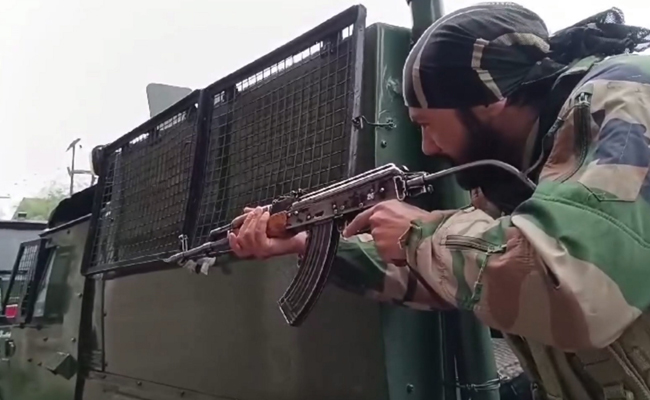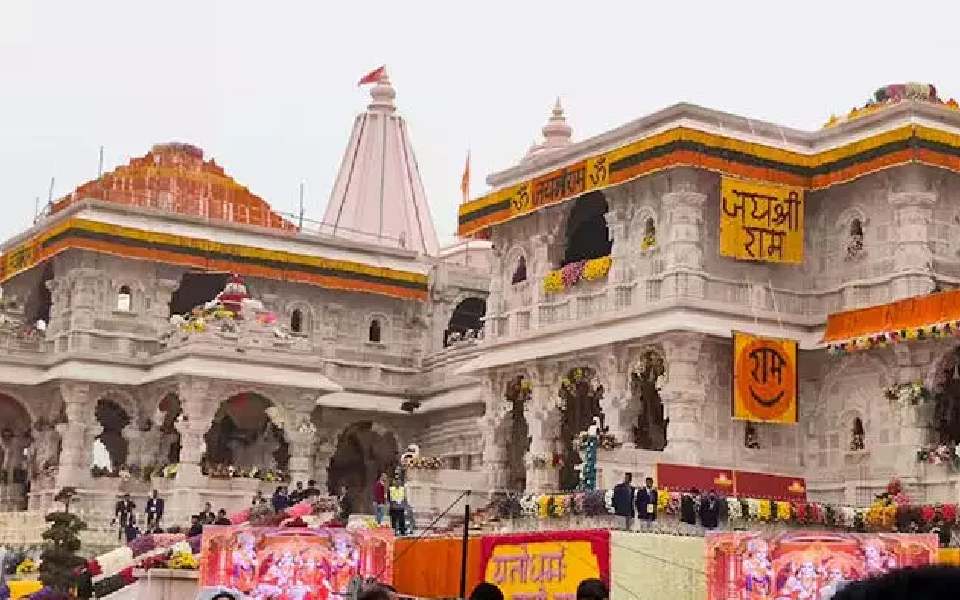Surat (PTI): Congress leader Rahul Gandhi will be in Gujarat's Surat city on Monday to file an appeal in a court against his conviction in a criminal defamation case over his "Modi surname" remarks.
Senior Congress leaders, including Priyanka Gandhi Vadra, chief ministers of three Congress-ruled states, other national and state party leaders are likely to accompany him to the court, sources said.
Gandhi's lawyers said the matter is likely to be taken up for hearing by the sessions court on Monday itself.
The Congress leader will seek suspension of his sentence by the sessions court, they said.
Gandhi will land in Surat at around 2 pm, as per the Congress sources.
Rajasthan Chief Minister Ashok Gehlot, Congress Rajya Sabha member K C Venugopal and other senior party leaders will also be in Surat.
Congress general secretary Priyanka Gandhi Vadra, Chhattisgarh Chief Minister Bhupesh Baghel and Himachal Pradesh CM Sukhvinder Singh Sukhu are also likely to be in the city as Gandhi moves court, the sources said.
The court of Chief Judicial Magistrate H H Varma here had on March 23 convicted 52-year-old Gandhi and sentenced him to two years in jail in a 2019 criminal defamation case filed against him over his "Modi surname" remarks.
It had held the Congress leader guilty under Indian Penal Code sections 499 and 500.
The court had also granted him bail and suspended the sentence for 30 days to appeal in a higher court.
The former Congress chief was on March 24 disqualified from the Lok Sabha following his conviction by the Surat court in the case.
Following his disqualification, Gandhi would not be able to contest elections for eight years unless a higher court stays his conviction and sentence.
The case was filed against Gandhi on a complaint by Bharatiya Janata Party MLA and former Gujarat minister Purnesh Modi for the Congress leader's alleged remarks "How come all thieves have Modi as the common surname?"
Gandhi, who had served as an MP from Wayanad in Kerala, made the remarks while addressing a rally at Kolar in Karnataka on April 13, 2019 during the Lok Sabha elections campaign.
The sentence of two years invited his disqualification from the membership of Parliament under provisions of the Representation of the People Act, 1951.
The RP Act holds that an MP or a member of legislative Assembly (MLA) convicted for any offence and sentenced to imprisonment for not less than two years shall be disqualified from the date of conviction.
Let the Truth be known. If you read VB and like VB, please be a VB Supporter and Help us deliver the Truth to one and all.
United Nations (PTI): In a strong retort, India has slammed Pakistan in the UN General Assembly, saying its “fingerprints" are on terrorist incidents across the world and the country should realise that cross-border terrorism against India will “inevitably invite consequences”.
India exercised its Right of Reply in the UN General Assembly on Friday in response to Pakistan Prime Minister Shehbaz Sharif raising the issue of Jammu and Kashmir in his address at the General Debate of the 79th session of the UN General Assembly.
“This Assembly regrettably witnessed a travesty this morning. A country run by the military, with a global reputation for terrorism, narcotics trade and transnational crime has had the audacity to attack the world's largest democracy,” First Secretary in India’s Permanent Mission to the UN Bhavika Mangalanandan said, delivering India’s Right of Reply.
She asserted that as the world knows, Pakistan has long employed cross-border terrorism as a weapon against its neighbours.
“It has attacked our Parliament, our financial capital Mumbai, marketplaces and pilgrimage routes,” she said, referring to the 2001 Indian Parliament attack and the 26/11 Mumbai terror attacks carried out by Pakistan-based terror groups.
“The list is long. For such a country to speak about violence anywhere is hypocrisy at its worst,” Mangalanandan said.
In his address, Sharif raised the Kashmir issue, as expected, and said that to “secure durable peace”, India should reverse the Abrogation of Article 370 and enter into a dialogue for a “peaceful” resolution of the issue.
He said India has spurned Pakistan’s proposals for a mutual “Strategic Restraint Regime”.
Responding to this reference “to some proposal of strategic restraint”, India asserted that there "can be no compact with terrorism. In fact, Pakistan should realise that cross-border terrorism against India will inevitably invite consequences.”
Reminding the international community that this was a nation that for long hosted Al Qaeda leader Osama bin Laden, Mangalanandan said Pakistan’s “fingerprints are on so many terrorist incidents across the world, whose policies attract the dreads of many societies to make it their home.
“Perhaps it should come as no surprise that its prime minister would so speak in this hallowed hall. Yet we must make clear how unacceptable his words are to all of us. We know that Pakistan will seek to counter the truth with more lies. Repetition will change nothing. Our stand is clear and needs no reiteration,” she said.
India stressed that it is even more extraordinary for a country with a history of rigged elections to talk about political choices, that too in a democracy.
“The real truth is that Pakistan covets our territory, and in fact, has continuously used terrorism to disrupt elections in Jammu and Kashmir, an inalienable and integral part of India,” the young Indian diplomat said.
She said it is ridiculous that a nation that committed genocide in 1971 and which persecutes its minorities relentlessly even now, “dare speak about intolerances and phobias. The world can see for itself what Pakistan really is.”
A Pakistani diplomat went on to respond to Mangalanandan with a Right of Reply.
Describing India's assertions as "baseless and misleading", the Pakistani diplomat said the United Nations Security Council, through numerous resolutions, has unequivocally called for a free, impartial plebiscite to enable the people of Jammu and Kashmir to exercise their inalienable right to self- determination.
Every year, Pakistan’s leaders, on expected lines, make references to Jammu and Kashmir in their UNGA speeches and India fields its young diplomats to deliver hard-hitting retorts to Islamabad’s rants.

